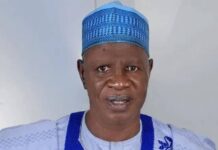When in 1960, the Pulitzer-winning American author, Harper Lee, published her all times classic, To Kill a Mockingbird, she had no idea that people in my clime could use the wisdom embedded in her deeply epistemic narrative. Nigeria, like her American south of the Jim Crow years, is a place where young dreams get killed and evil continues to destroy the innocent.
On January 15, 1966, a group of mutinous soldiers led by Chukwuma Kaduna Nzeogwu and Emmanuel Ifeajuna, both officers of Igbo extraction and their men, attacked the commercial cities of Lagos, Kaduna and Ibadan, while instantaneously blockading the Rivers Niger and Benue. By the time the rampaging coupists were done, twenty-two high profile political figures and, in some cases, members of their families were mowed down in cold blood.
The casualties included the Prime Minister of Nigeria, Alhaji Abubakar Tafawa Balewa; Premier of the Northern region, Sir Ahmadu Bello; Premier of the Western Region, Chief Samuel Ladoke Akintola, and the flamboyant Finance Minister, Festus Okotie-Eboh, among others. We may not all subscribe to their individual brand of politics but without question, those were leaders of their people and representatives of a crucial Nigerian historical epoch. What a national tragedy of epic proportions.
Except for Colonel Arthur Unegbe, who was killed for refusing to release the Armoury under his care to the coup plotters, none of the others killed was Igbo. Dr Nnamdi Azikiwe, the President of Nigeria, had travelled to the United Kingdom on medical leave, having handed over to Senate President, Dr Nwafor Orizu. At the time of the insurrection, the Premier of the Eastern Region, Dr Michael Okpara, had an important guest with him in the person of Archbishop Macarius, the President of Cyprus, and so was considered a risky target.
In a speech read by Nzeogwu, he said: “The aim of the Revolutionary Council is to establish a strong united and prosperous nation, free from corruption and internal strife.” Not many, especially from northern Nigeria, who were holding top positions in the Federal Government and so suffered the heaviest human casualties bought into his idea. The feeling was that the majors had planned to eliminate political leaders of other ethnicities in order to pave way for Igbo hegemony. It did not matter that both Colonel Emeka Ojukwu and Major-General Aguiyi Ironsi, both Igbos, played a decisive role in foiling the coup.
General Aguiyi-Ironsi’s failure to punish the coup plotters, coupled with the promulgation of the now infamous Decree No. 34, which abrogated the country’s federal structure in exchange for a unitary one provided a perfect storm for conspiracy theory. Things went south from there.
The 1966 anti-Igbo pogrom began with the retaliatory killing of Igbos and other Southerners living in the North, starting in May 1966, and this peaked around September of that year. In response, some Northerners were also massacred in Eastern cities. A cascade of events following that culminated in a tsunami of deaths and the secession of the Eastern Region, with Ojukwu’s declaration of the Republic of Biafra on May 26, 1967. The Nigerian-Biafran civil warsaw to the death of an estimated three million Igbos, one of the highest mass murders of the 20th Century, was broader in scope than the Armenian genocide and second only to the Jewish Holocaust.
Sentiments aside, even as an Igbo, I can understand how a Northerner would feel targeted by the coupists. Forget the many accounts, including that of Adewale Ademoyega, one of the plotters, wherein his book, Why We Struck, he stated that: “There was no decision at our meeting to single out any ethnic group for elimination.” Or they’re often talked about a plan to release Chief Obafemi Awolowo, a Yoruba, from jail and make him Prime Minister. If the table were to be turned, I probably would feel the same way the Northerners did.
I believe their anger was justified. What should never have happened was the grave injustice of visiting the sin of a tiny few on a whole nationality of people, with disastrous consequences. This is more so, especially when the few sinners did not even own their position as the representatives of people who later became the victims. Legends have it that Nzeogwu, though born of Igbo parents, was more Northern by every standard than Igbo. He was born and raised in the North, spoke fluent Hausa and was popularly called Kaduna by his colleagues. Nigeria took notice of his ethnicity only when he and his gang drank some Kool-Aid and ran amok.
When Ahmed Gulak was assassinated at the precincts of the Dr Sam Mbakwe Airport, Owerri on Sunday, May 30, all hell was let loose. An already terrible ethnic tension almost boiled over to a tipping point. As soon as the murder took place, the Imo State Police Command called it the handiwork of the Indigenous People of Biafra (IPOB) separatists. How convenient!
In a statement later released by the police leadership, it said: “On sighting the police, the hoodlums providing security coverage to those sharing the onions opened fire on the police teams, but the gallant and battle-ready police officers returned fire. Six hoodlums who carried out the killing and four other members of their gang were fatally injured.” That was how the Nigerian police explained the extrajudicial killing of suspects, which doesn’t make sense even to the dunderheaded. Haba!
In an attempt to impress their Ogas at the top, some innocent young men and women may have been sent to their early graves with impunity, while Ahmed Gulak’s killers may still be somewhere roaming the streets and patting themselves on the back for the cover the police statement provided for them.
And so whether it is all Fulanis being labelled terrorists because of the actions of some pastoralists, many of whom may not even be Fulani, or some Northern groups constantly threatening to expel all Igbos from the North due to the infractions of IPOB, a group they may not believe in, the result is the same, namely: Visiting the sin of one person on another. That was exactly how Nigeria bred and nurtured Igbophobia, turned it into a state region and handed it over to the likes of Danladi Umar to weaponise. One of the hallmarks of a progressive society, as opposed to retrogressive feudalism, is the way crime is handled and how justice is dispensed.
Nigeria’s system of criminal justice hardly follows the usual sequence of indictment, conviction and sentencing. No. What is often the case is to scape-goat certain individuals or groups, offer them up as sacrificial lambs in an attempt to appease some powerful interests or other groups. In other words, in our warped sense of primitive justice, we create multiple victims, while manipulating the optics of justice supposedly served.
Until Nigeria transitions to such a culture where our criminal justice system lives up to its promise of punishing the offender and sparing the innocent, our democracy remains at best a counterfeit and the whole essence of our existence bereft of meaning. Life in Nigeria and, I dare say, in most of Africa will continue to default to the base instinct of survival of the fittest. Like black slaves in Harper Lee’s American South, Nigeria continues to waste the lives of the innocent.
As put by Harper Lee in her classic: “Mockingbirds don’t do one thing but make music for us to enjoy. They don’t eat up people’s gardens, don’t nest in corncribs, they don’t do one thing but sing their hearts out for us. That’s why it’s a sin to kill a mockingbird.”
Osmund Agbo, a public affairs analyst is the coordinator of African Center for Transparency and Convener of Save Nigeria Project. Email: Eagleosmund@yahoo.com
Follow the Neptune Prime channel on WhatsApp:
Do you have breaking news, interview request, opinion, suggestion, or want your event covered? Email us at neptuneprime2233@gmail.com





